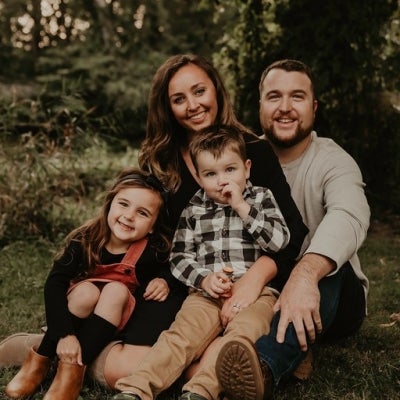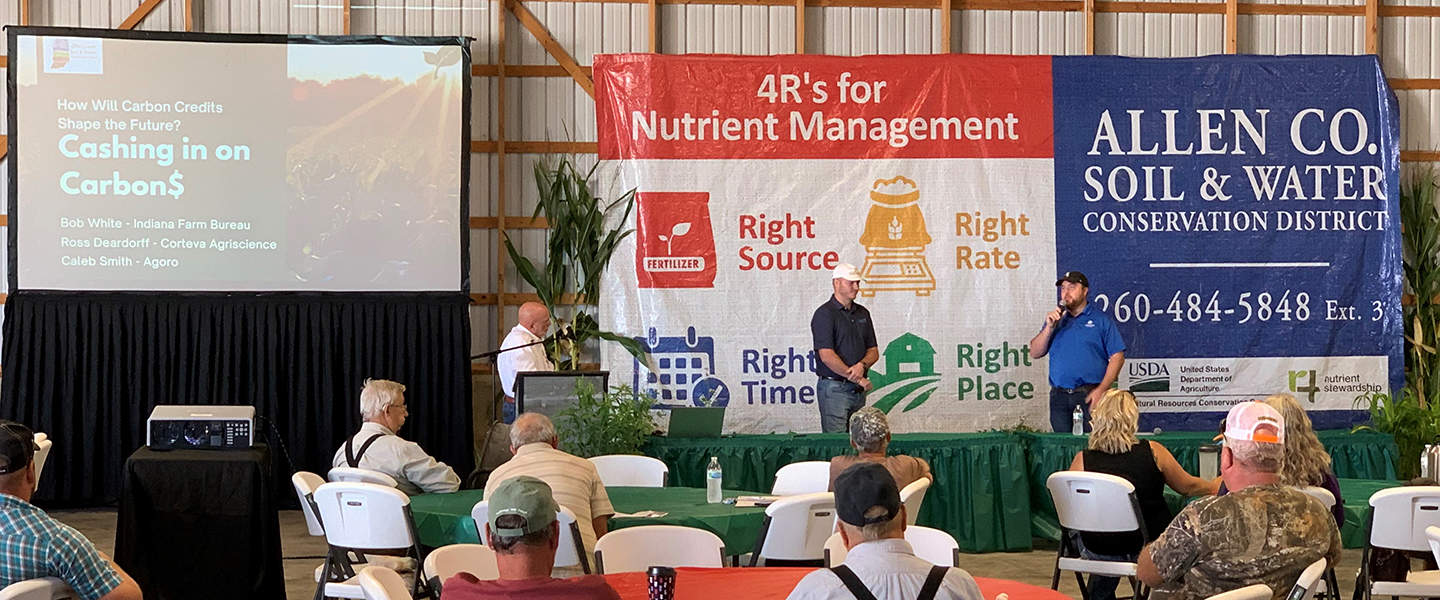Ross Deardorff has made a living off the art of the handshake. “The first lesson my agriculture teacher, Dale Griffin, taught my eighth-grade agriculture class was how to shake someone’s hand and be professional,” he says.
The Rossville, Ind., native carried that lesson through his time as a Rossville FFA officer, during his years as an agricultural business management major at Purdue University, and into his career at Corteva Agriscience. As a digital business manager whose “many hats” help guide growers into more efficient, climate-smart practices, the personal interaction element is precisely what does the job.

Ross Deardorff (shown with his family), digital business manager at Corteva Agriscience, helps farmers make sustainable growing decisions.
One of Deardorff’s key responsibilities is to coach farmers by way of the Corteva Carbon Initiative, which incentivizes sustainability efforts. Where Corteva’s overall goal is to help farmers be more profitable in climate-smart growing, Deardorff helps break down the process into personalized, manageable steps. For instance, he helps growers determine which practice to introduce first and which cover crop makes the most sense for their farm.
The individualization is important for dissecting and demystifying the information surrounding sustainability and carbon sequestering. One of the biggest misconceptions, for example, is that “Big Ag is going to tell you how to farm,” Deardorff says. “We leave decisions up to the grower.”
Many farmers also think they must “go all the way in” to make a difference, he adds, “but the best way is to start small — one field, one practice, whatever it might be.”
Even small steps can make a noticeable difference. “These practices are agronomically beneficial to farms,” Deardorff says. “The reward is not only through increased yields but increased profitability.”
Deardorff has seen the impact himself: He’d been on the fence about strip-till and cover crops until he saw the higher yields and better soil health from a field on which his in-laws’ tenant utilized those practices.
“I had a firsthand experience for how these practices do work in some scenarios,” he says. “And if [farmers] are better off, then our community as a whole is better off. That’s why I’m a believer in it.”
While fields vary, Deardorff says a general, simple way to move toward climate-smart agriculture may be no-till and a cereal rye cover crop.
For those interested in making agronomy and sustainability a career, “Always strive to learn, take as many agronomy courses as you can, push yourself and have fun,” he advises.












